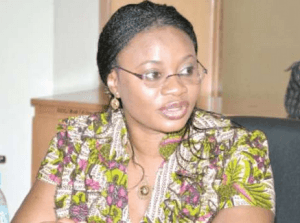EC launches strategic plan seeking inclusiveness

The Electoral Commission has unveiled a five-year strategic plan seeking to become a world-class, trusted and independent electoral body and a yardstick for the conduct of elections in Africa.
The Commission has therefore introduced five pillars against, which planned activities have been rolled out to facilitate smooth implementation and realisation of the scheme beginning from 2016 to 2020.
The EC Chairperson, Mrs Charlotte Osei told a large gathering at the launch, that the outdooring formed part of 27 reforms it is undertaking to strengthen the electoral body for better delivery of its mandate.
Apart from the plan, the commission is charting a redefined corporate vision and mission, new brand identity, new corporate values, and organisational structure.
She explained that the reforms began in September 2014 when the Commission, under the chairmanship of its former Chairman, Dr Kwadwo Afari-Gyan requested the United Nations Development Programme to help the EC come out with an inclusive needs assessment to develop a new strategic plan.
Since 2015, she said the consultants who worked on the assessment engaged various stakeholders, including political parties, national governance institutions, civil society organisations, development partners, the EC Commissioners and staff, culminating in the submission of the final report on the exercise in October 2015.
She noted that the reports called for strengthening the internal working machinery of the Commission for improved support of its mandate and vision for 2020.
“The primary objective of this strategic plan is to create a world-class, trusted and independent electoral body in Ghana.”
“The objectives have been defined and action plans created for implementation across all pillars of the organisation including our mandate, our people, our resources, our processes and our brand.
“Specific performance measurement targets have been put in place to quantify our delivery and ensure we uphold our vision, our mission and our values.
“This formed the basis for the preparation of the strategic plan. We strive for excellence. We work to ensure that the voices of all our people are heard – women, children, persons with disabilities.”
Mrs Osei said the Commission is implementing comprehensive structural changes to become a model in Africa that enable free, fair and credible elections for citizens and political parties.
Among the reforms being carried out is the creation of a legal department to manage compliance, provide advisory support, Alternative Dispute Resolution services and oversee relationships with strategic partners.
Separation of human resources from administrative services, which is aimed a robust focus on attracting talents, performance management; improve internal stakeholder engagement, training and career advancement.
The Electoral Commission is creating a new department for administration and internal coordination to improve administrative oversight and work flow within the head office departments and regional offices and head office.
Also in the mix is a new structure for managing third party or fee for service elections and renewed focus on internally generated funds – management, oversight and procedures.
The office of Electoral Services has been expanded to include elections, regulation of political parties and voter registration services.
The Electoral Commission seeks to move away from public affairs to a restructured communications department to oversee expanded platforms for more efficient and proactive stakeholder engagement and voter education.
“There is also a more interactive, user-friendly and modern online presence through the Commission’s new website, with a better social media presence and engagement to serve the people of Ghana better,” the Chairperson said.
The Electoral Commission chair also responded to an array of questions from the media bordering on the limited voter registration exercise, the controversial new logo and public education towards the registration.
She said a lot of activities have been rolled out to carry out the limited voter registration exercise, which begins on April 28 and targets 1.2 million Ghanaians who have turned 18 or persons who have not registered before.
“This registration is not a replacement exercise, it is for those who have never registered before and those who have turned 18,” she stated.
Source: GNA
